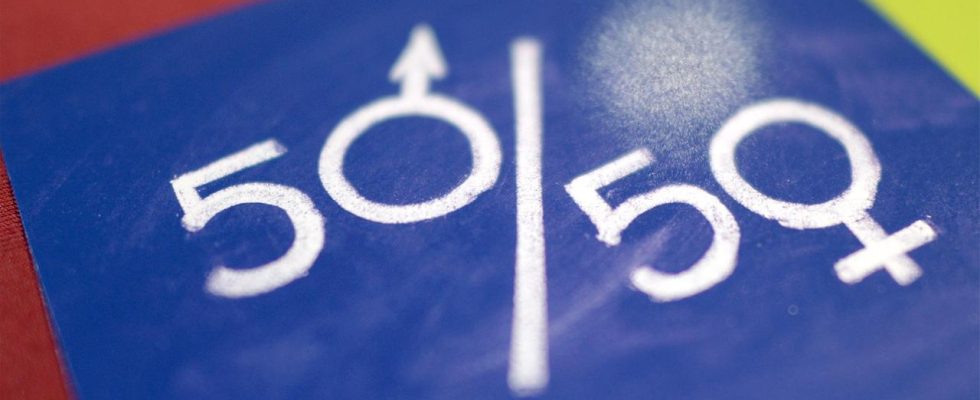As far as gender equality is concerned, Germany is in a better position worldwide than it was in 2022. At least in the eyes of the World Economic Forum. Politics can score points, but the economy is weak when it comes to equal opportunities.
In a global comparison, Germany has improved in terms of equality between women and men – and this is mainly due to the role of women in politics. This is the conclusion reached by the World Economic Forum (WEF) in its annual ranking, which ranks the opportunities for equality in 146 countries.
This year, the Federal Republic came sixth in the global ranking. In the previous year, Germany was still in tenth place. According to the WEF, the main contributors to the improvement were the increased number of female MPs in the Bundestag and the associated more balanced gender distribution. The index of the WEF Germany also certifies a largely balanced gender equality in the education and healthcare sectors.
However, the situation is different when looking at the German economy: Germany has even lost ground here in terms of equality, according to the WEF ranking. This is reflected in an unequal ratio of wages paid to men and women, but also in the allocation of management positions. According to the WEF, only 29 percent of such top positions are held by women nationwide – Germany has thus fallen back to the value of 2018.
Iceland still at the top
According to the WEF, Iceland remains the world leader. Norway, Finland, New Zealand and Sweden follow in the top places in the ranking.
The World Economic Forum rated equality between men and women as the worst in the current ranking in Afghanistan. Chad, Algeria and Iran are also at the bottom.
131 years to global equality
The WEF has published the Gender Equality Index since 2006. According to the institute’s assessment, full equality of opportunity for women and men will only be achieved in 131 years given the current global development.
However, Europe could achieve this goal much more quickly: the WEF assumes that there could be a balanced relationship in terms of equality in 67 years. From the point of view of the WEF, it will take the longest in the East Asian and Pacific region to implement a full measure of equality – here the institute predicts that it will take another 189 years.

